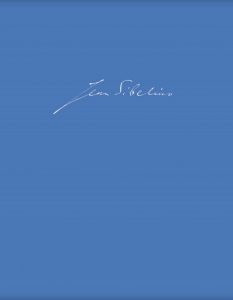
The latest release in the JSW (Jean Sibelius Werke) complete critical edition of Sibelius’s music has been published, containing one of the highlights of the composer’s chamber music output: the Piano Quintet in G minor, JS 159.
This is Sibelius’s only finished work in this genre and was completed in Berlin in the spring of 1890. Like so many of his early works, the Quintet remained unpublished during his lifetime, first appearing in print from Edition Wilhelm Hansen in 1993. Moreover, Sibelius never heard his Quintet performed in concert. It was not until the centenary of his birth that the entire work was performed in public for the first time at the Turku Music Festival. In 1890 only partial performances took place, without the composer present; among newspaper reviews at the time, ‘Bis’ Wasenius in Hufvudstadsbladet (May 1890) wrote: ‘Mr Sibelius repeatedly gives proof of the increased value of his extraordinary compositional talents’, and Åbo Underrättelser (October 1890) noted that ‘Jean Sibelius […] precisely in this creation has achieved common and justified acclaim as a very eminent compositional talent’.
In addition to the five movements that constitute the Quintet in its final form, another Scherzo movement has survived and is published as an appendix in this volume. The editor is Anna Pulkkis.
SON 637 – Price € 217.00
More information and orders: https://www.breitkopf.com/work/6198/18276

Also released is a volume of six part songs for female choir, using the Urtext from the previously released volume SON 617 of the JSW Complete Edition edited by Sakari Ylivuori. The pieces were written at different times and for different occasions, and vary both in the language of their texts (Finnish and Swedish) and in length and number of voices. Nevertheless, they form a coherent and interesting set of moderate difficulty throughout, making Sibelius as a composer accessible to smaller female choirs and ensembles. The works included are:
Kotikaipaus, JS 111 (text: Walter von Konow’)
Kansakoululaisten marssi, JS 103 (text: Onnen Pekka)
Kantat, JS 107 (text: Walter von Konow)
Soi kiitokseksi Luojan, Op. 23 No. 6 (text: August Valdemar Forsman)
Nejden andas from Op. 30 (text: Zachris Topelius)
Terve, Ruhtinatar from JS 104 (text: Zachris Topelius)
ChB 5390 – Price € 8.90
More information and orders: https://www.breitkopf.com/work/20535/











